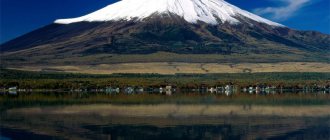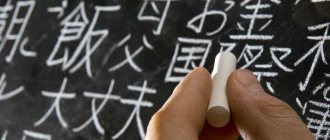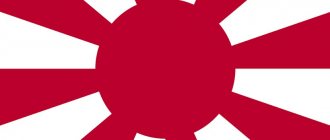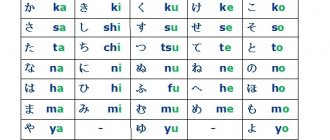Japan has always stood out from the list of countries that are characterized by high rates of economic development. This eastern state successfully fights any crises and disasters. This happens, among other things, thanks to the hard work and diligence of its citizens. Purposefulness, ideology and responsibility are brought up in Japan from a very early age. It is no coincidence that the management systems developed in this country are recognized throughout the world as the most effective, which is why they are used as a standard in many large enterprises.
Features of employment
Immigrants who come to Japan have to become accustomed to the high demands of employers and a unique national mentality. For those who do not want to do this, the company quickly finds a replacement.
The Japanese most often take a job for life. That is, having come to the enterprise as a young man, they are on its staff until retirement. If you want to find a job in another company, the new employer will take into account the time of the previous continuous contract.
Japan is considered a country that is quite closed to immigrants. After all, when applying for a high-paying, prestigious job, you will need not only to be a true professional, but also to have a fairly high level of knowledge of the Japanese language. But, of course, when considering candidates for a vacant position, preference will always be given to the indigenous residents of the country. In order to get a job in Japan, you will need to prove your extraordinary abilities. And for this, documents confirming a high level of professionalism will clearly not be enough. It is recommended to prepare in advance the most striking independently created projects, translating them into Japanese, so that they can be presented.
Holidays by country
- Abkhazia
- Australia
- Austria
- Azerbaijan
- Asia
- Åland Islands
- Albania
- Algeria
- America
- Anguilla
- England
- Angola
- Andorra
- Antigua and Barbuda
- Argentina
- Armenia
- Aruba
- Afghanistan
- Bahamas
- Bali
- Bangladesh
- Barbados
- Belarus
- Belize
- Belgium
- Benin
- Bermuda
- Bulgaria
- Bolivia
- Bonaire
- Bosnia and Herzegovina
- Brazil
- Burkina Faso
- Burundi
- Butane
- Vanuatu
- Vatican
- Great Britain
- Hungary
- Venezuela
- Virgin Islands
- Vietnam
- Gabon
- Hawaiian Islands
- Haiti
- Guyana
- Ghana
- Guatemala
- Guinea
- Guinea-Bissau
- Germany
- Guernsey
- Honduras
- Greece
- Georgia
- Guam
- Denmark
- Dominica
- Dominican Republic
- Ancient Rome
- Egypt
- Zaire
- Zambia
- Zimbabwe
- Israel
- Ingushetia
- India
- Indonesia
- Jordan
- Iraq
- Iran
- Ireland
- Iceland
- Spain
- Italy
- Yemen
- Cape Verde
- Kazakhstan
- Cayman islands
- Cambodia
- Cameroon
- Canada
- Qatar
- Kenya
- Cyprus
- Kiribati
- China
- DPRK
- Cocos Islands
- Colombia
- Comoros
- Congo
- Korea
- Costa Rica
- Ivory Coast
- Cuba
- Kuwait
- Kyrgyzstan
- Curacao
- Laos
- Latvia
- Lesotho
- Liberia
- Lebanon
- Libya
- Lithuania
- Luxembourg
- Mauritius
- Madagascar
- Mayotte
- Macedonia
- Malawi
- Malaysia
- Malta
- Mariana Islands
- Morocco
- Marshall Islands
- Mexico
- Micronesia
- Moldova
- Monaco
- Mongolia
- Myanmar
- Namibia
- Nauru
- Nepal
- Nigeria
- Netherlands
- Nicaragua
- Niue
- NKR
- New Zealand
- Norway
- UAE
- Oman
- Isle Of Man
- Norfolk Island
- Pitcairn Island
- Saba Island
- Wallis and Futuna Islands
- Pakistan
- Palau
- Palestine
- Panama
- Papua New Guinea
- Paraguay
- Peru
- PMR
- Poland
- Portugal
- Puerto Rico
- Russia
- Rwanda
- Romania
- Salvador
- Samoa
- San Marino
- Sao Tome and Principe
- Sardinia
- Saudi Arabia
- Swaziland
- Northern Ireland
- Northern Mariana Islands
- Northern Cyprus
- Saint Kitts and Nevis
- Saint Lucia
- Serbia
- Singapore
- Syria
- Scandinavia
- Slovakia
- Slovenia
- Sudan
- Suriname
- USA
- Tajikistan
- Taiwan
- Thailand
- Tanzania
- Turks and Caicos
- Tibet
- Tokelau
- Tonga
- Trinidad and Tobago
- Tuvalu
- Tunisia
- Turkmenistan
- Türkiye
- Uganda
- Uzbekistan
- Ukraine
- Wallis and Futuna
- Uruguay
- Wales
- Fiji
- Philippines
- Finland
- Falkland Islands
- France
- Croatia
- CAR
- Chad
- Montenegro
- Czech
- Chile
- Switzerland
- Sweden
- Scotland
- Ecuador
- Eritrea
- Estonia
- Ethiopia
- South Africa
- Yugoslavia
- South Korea
- South Ossetia
- South Sudan
- Jamaica
Rating of professions
What specialists does the labor market in the Land of the Rising Sun need today? The following can find work in Japan without much effort:
- IT specialists. It is quite easy to explain the demand for such professions in a country that is a leader in the development of electronic technologies. However, an immigrant should prepare in advance for great competition. The fact is that Japan has many of its own professionals. The most popular specialties in this category are project managers and developers.
- Designers and architects. It is enough for good specialists from this field to get a job in Japanese companies. Moreover, employers are happy to attract immigrant professionals for cooperation. It is worth noting that in this regard, this is one of the few categories of specialists that deserve such a favorable attitude.
- Trade professionals. The most popular specialty in this category is sales managers. Japanese companies and sales representatives, freight forwarders and other workers in this field are invited. However, it is worth keeping in mind that to fill a vacancy you will need not only work experience in your specialty, but also excellent command of the Japanese language.
- Management personnel. Such employees form the backbone of Japanese business. The fact is that obtaining evolutionary results of economic development is impossible without proper planning of workers’ time and effort. In this regard, Japanese employers highly value recruiting, planning and management specialists. However, it is worth keeping in mind that this area is still easier for the indigenous residents of the country to navigate. But at the same time, foreign experience in implementing modern management systems may also be of interest to the employer.
- Marketing and PR specialists. Advertising is the engine of progress. The Japanese do not neglect this rule either. In addition to employees managing projects, managers working in this area are in demand in the country. However, only a person who, in addition to experience, is fluent in Japanese will be able to work in the advertising field.
- Electronics engineers. For Japanese employers, specialists capable of working in the production of household appliances, road vehicles, shipbuilding and instrument making are of particular value.
- Production personnel. Many large Japanese companies operating in the food and pharmaceutical industries, machine tools and mechanical engineering need such specialists. So far, in this country, complete automation of production is a prospect for the future. That is why immigrants will always be able to find work for themselves in some factory. Here, as a rule, technicians and operators are required for automated production lines. However, despite the fact that specialists in this category can quite successfully find employment in the country, it is necessary to clarify the requirements that the employer places on candidates. They are often required to have a technical education diploma.
- Consultants and teachers. These specialists are also in demand in the state. Here you can even get a job as a Russian language teacher. But lately there have been quite a lot of people applying for such a vacancy, so you have to wait for a suitable place for years. English teachers can get a job in Japan without any problems. However, if their place of work is educational institutions, then the specialist will be required to have a teaching license.
- Accountants and financiers. No organization can do without these workers. This is why they are also included in the category of the most in-demand professions in Japan. But knowledge of the language is a prerequisite for people who decide to apply for such a vacancy.
- Pharmacists and medical professionals. This category of specialists in Japan is considered one of the most privileged. Most clinics in the country are private. Thanks to this, the salary in Japan for a medical worker is approaching 760 thousand yen per month. Converted to dollars, this amount will be 6,400. However, it is almost impossible for an immigrant to get a job as a doctor in this country. The fact is that diplomas from other countries confirming receipt of this profession are not valued in Japan. To obtain permission to work as a doctor, you will need to graduate from a medical school directly in this country.
Work mentality
Every resident of Japan certainly follows the traditions that have developed in the country over many centuries. If we consider the attitude of the country's indigenous population to work, it can be noted that it has certain qualities. Among them are politeness and loyalty, personal responsibility, as well as the ability to operate effectively within a certain work team.
The main goal of the Japanese is to benefit the company, while working as a kind of cog in one coherent large mechanism. Individuality is not welcomed in this country. Those loners who are guided by the principle “my house is on the edge” have no chance of success. Highly educated, but at the same time ambitious people are less valuable for management than those who, although not as educated, are patient and open to compromise. Why does this happen? Yes, simply because the Japanese do not believe that money can be given to people in simple ways. They will not respect someone who does not work hard.
By the way, many Europeans complain that their lives are practically spent at work. But is it? How long are the working hours in Japan? This should be clarified in advance by anyone who has decided to take one of the vacancies in this country.
Prices for attractions in Japan
Look for interesting excursions on the Sputnik and Tripster websites. Individual and group, without crowds of tourists and in Russian.
In Japan, every prefecture, every city has its own wealth! We will focus on the sights of Tokyo. Here are the prices for some interesting places:
- Shinjuku Goen Imperial Park - ¥200;
- Ueno Zoo - ¥600 for adults, children - free;
- Tokyo National Museum - ¥620;
- Nezu Museum - ¥1000;
- Tokyo Tower - ¥1600.
- Hot springs (onsen) - ¥1500-2000.
Plus, there are a lot of things you can visit for free in Tokyo. These include the Imperial Palace (make an appointment in advance), Kaminarimon Gate "Thunder Gate", as well as some parks and temples.
Medicine in Japan is expensive. We advise you to pack a tourist first aid kit.
Imperial Palace in Tokyo (Photo: @alexlanting / unsplash.com)
Start of the working day
Everyday life for Japanese residents begins with a trip. They rush to their place of work, usually using public transport. Most residents of this state refuse to use a car. They do this in order to save money. After all, maintaining a personal car will cost them about 10 thousand dollars. And this is only in one month! And is it worth using a personal car in a country that has the best public transport system on our planet?
However, in large cities, the Japanese pay for such savings with tedious commutes to work in cars that are 200% full relative to their design capacity. Nevertheless, such a morning ritual does not at all cause irritation among the indigenous inhabitants of the country, which they would take out on a neighbor.
Japan Holidays in November
November 3 (national holiday) - Culture Day (bunka no hi) . Day to promote culture and love for freedom and peace. On Culture Day, schools and other government institutions reward selected individuals for their special cultural achievements.
November 15 - Seven-five-three (shichi-go-san) . It is a holiday for girls aged three and seven, and boys aged three to five. On this day, children dressed in special kimonos go with their parents to the temple, where they pray for their good health.
November 23 (national holiday) - Thanksgiving Day (Labor Day) (kinro kansha no hi) . National holiday of honoring labor.
Coming to work
Everyday work for the Japanese begins with a kind of ritual. It includes not only greeting superiors and colleagues. The ritual of starting the day includes employees chanting various inspiring sayings and slogans together. Only after this can you begin to perform production tasks.
What time does the working day start in Japan? Officially, most companies in the country have the same schedule. It stipulates that the working day starts at 9 a.m. and ends at 6 p.m. However, most Japanese arrive at their workplace at least half an hour earlier. It is believed that an employee needs time to get ready for work.
Currently, many corporations have introduced a system of temporary cards. What is it? A special card is issued for each employee. It must be lowered into the device installed in front of the entrance when arriving at work and when leaving it. The card reflects the time that affects wages in Japan. Some companies deduct one hour of work for being 1 minute late. There are corporations where in this case the employee will not be given a salary for the whole day.
Work days
How long is a working day in Japan? Officially 8 o'clock. The country also provides for a lunch break. Its duration is 1 hour. Thus, the standard work contract specifies 40 hours per week.
However, working hours in Japan tend to exceed these limits. This is influenced by another tradition of the country's inhabitants. The fact is that climbing the career ladder is of great importance to them. And climbing these steps, as a rule, does not depend at all on the qualifications and intelligence of the employee, but on the amount of time during which he does not leave his chair. It is because of this that the length of the working day in Japan is far from the official one. Employees often stay late to complete assignments in the evenings. In this regard, the working day in Japan sometimes reaches 12 hours. Moreover, the country's residents do this mainly on their own initiative. In addition, despite the fact that the work week in Japan lasts only five days, employees also come to the company on Saturdays. And this is also most often their own desire.
How many work in different countries of the world?
The latest labor market research from the Organization for Economic Co-operation and Development (OECD) looks at the number of official working hours per year in 38 countries around the world. It is noteworthy that countries such as Germany, Denmark, Switzerland, Austria and Luxembourg occupy some of the last positions on the list, while the leaders are Mexico, Costa Rica and South Korea.
Working time table in some countries of the world
| A country | Working hours per year | A country | Working hours per year |
| Mexico | 2255 | Spain | 1695 |
| Costa Rica | 2212 | Great Britain | 1676 |
| South Korea | 2069 | Australia | 1669 |
| Greece | 2035 | Finland | 1653 |
| Russia | 1974 | Sweden | 1621 |
| Poland | 1928 | Austria | 1601 |
| Israel | 1889 | Switzerland | 1590 |
| Türkiye | 1832 | Luxembourg | 1512 |
| USA | 1783 | France | 1472 |
| Czech | 1770 | Norway | 1421 |
| Italy | 1730 | Denmark | 1410 |
| Japan | 1713 | Germany | 1363 |
| Canada | 1703 |
According to official data, Japan is not in first place in the world in terms of working hours, but this is official. If you add overtime of 80 hours per month, you get more than 2,500 hours per year. Thus, Japanese employees will leave workers from other countries far behind.
A little history
The beginning of the increase in the average working day in Japan was facilitated by the rather low wages that the country's population received in the 1970s. Employees did everything to increase their earnings. That is why they sought to get extra money for overtime hours. This trend continued into the 1980s. And this despite the fact that a period came when Japan entered the list of the most highly developed economic countries, taking second place there. Residents of the country did not change the established tradition in the late 1990s. At this time, the working hours in Japan were long due to the crisis. In order to successfully overcome it, companies began to carry out internal reforms, rebuilding their organizational systems. At the same time, workers stayed late at work, trying not to get laid off. At the same time, companies began to hire temporary employees working without any guarantees or bonuses. Such a step made the existence of people on the staff even more unbearable.
Today, no one is embarrassed by a working day of 12 hours or more. As a rule, no one forces people to stay late in the evenings, but they believe that they are obliged to do so.
Karoshi
It is not uncommon for workers in Japan to remain at their jobs for fear of being thought of as specialists who cannot keep up with their duties. Moreover, when solving any production problem, a resident of this country strives to be a necessary link in one common chain of the corporation. The main thing for him is to work in such a way that the working group of which he is a member completes the task assigned to it within the minimum time and in an optimal manner. This is one of the reasons for the appearance of overtime. In addition, each employee, showing solidarity with his colleagues, strives to provide them with all possible assistance, which, in his opinion, they really need. This is how overtime works in Japanese companies, which is currently not paid.
Such a busy schedule leads to the fact that the country often experiences deaths due to overwork or suicide. And all this happens right in the workplace. A similar phenomenon in Japan even got its own name - “karoshi”; it is considered the official reason for a person’s death.
Unusual tradition
The stressful working conditions in Japan require some relaxation. This led to the emergence of an unusual tradition, which in the country is called “inemuri”. It represents sleep or a kind of quiet hour while working. During this time, the person continues to remain upright. In this case, sleep for the Japanese is not only a sign of hard work. It indicates the employee’s hard work and dedication.
However, those who have just got a job should not try to fall asleep on it. Inemuri is a privilege of the authorities. An employee has no right to sleep in front of a more qualified colleague. The only exception is processing that takes place after the end of the official working day. At this time, a person can sleep for 20 minutes, but with the condition that he will continue intensive work after waking up.
Vacations
As you can see, the Japanese work literally to their limits. Their daily routine and work system seem simply inhuman to Europeans. After reading these facts, the question immediately arises: “Is there a vacation in Japan?” Officially yes. According to the current legislation in the country, it lasts 10 days and must be provided once throughout the year. However, having studied the Japanese mentality, one can understand that the Japanese will not rest for so long. And indeed it is. It is not customary for residents of the country to take full advantage of their vacation. Existing traditions do not allow them to do this. In the culture of the country, it is believed that by using rest days, a person thereby indicates that he is lazy and does not support the cause of the entire team.
The Japanese compensate for their vacation with national holidays, of which there are quite a few in the country.
Japanese holidays in May
May 3 (national holiday) - Constitution Day (kenpo kinenbi) . The national holiday celebrates the anniversary of the adoption of the new constitution, which was adopted after World War II on May 3, 1947.
May 4 (national holiday) - Green Day (Day of Spring Awakening of Nature) (midori no hi) . Until 2006, Greenery Day was celebrated on April 29, the birthday of Emperor Seva, thanks to the emperor's love for plants and nature.
May 5 (national holiday) - Boys' Day or Children's Day (kodomo no hi).
May 13 - Mother's Day . On this day, many children buy flowers for their mother. According to Japanese flower meanings, red carnations are considered the best gift for mom. In schools across Japan, children draw pictures of their mother on this day.
Wage level
What is the remuneration for work in Japan? Its level will directly depend on the employee’s position and profession. Thus, an immigrant who occupies one of the vacant positions must initially count on a salary that is lower than that of the native population. It can range from $1,400 to $1,800 over the course of a month. Over time, a skilled worker will earn more. His salary will average $2,650.
Lawyers, attorneys, pilots and doctors with extensive experience receive from 10 to 12 thousand dollars in Japan. Even the most highly developed European countries cannot boast of such a monthly salary.
When is the best time to go to Okinawa and the Ryukyu Islands?
The islands of the Ryukyu archipelago, in the Japanese tropics, are warm all year round. Even in January, the average temperature is +16 °C, and in the hottest month, July, - +29 °C. The good news is that the fresh sea breeze helps to bear the heat.
The largest island of the archipelago, Okinawa, is known for its excellent sandy beaches. The season here opens in April and lasts until the end of October . The disadvantages of traveling to Okinawa in the summer and September are the influx of tourists, high temperatures, humidity and, of course, typhoons. Weather conditions largely depend on the wind.
Cheap flights to Okinawa
See hotels in Okinawa
Retirement
Japan's social security system has been in place since 1942. It allows people to retire when they reach age 65. This rule applies to both sexes.
Pensions in Japan are paid from the Social Security Fund. Today its assets reach 170 trillion yen.
The average social pension in Japan is $700. Professional wages are calculated based on the system in which the person worked. Thus, civil servants receive, while retired, 2/5 of their previous salary. For other employees, the amount of payments is determined based on the amount they have accumulated. It consists of monthly deductions from salary (5%). The employer also makes a contribution to the savings fund of a particular person. The company also makes monthly contributions to its employee’s pension fund.
General information
Of course, a travel package costs a lot of money, but if you are a beginner, it is better to choose this option.
The average cost of a two-week tourist tour from Moscow to Japan will cost approximately 150,000 rubles. This includes flights, trips around the country, accommodation and meals on a breakfast basis. Between breakfasts, the tourist eats at his own expense.
A tour from Vladivostok will be much cheaper. For example, a ferry tour costs approximately 60,000 rubles.
Airfare
The cost of plane tickets to most foreign countries is lower if you purchase them in Moscow. But it is more profitable to fly to Japan from Yuzhno-Sakhalinsk or Vladivostok - from 11,000 rubles, Khabarovsk - from 13,000 rubles, Irkutsk from 17,000 rubles, Petropavlovsk-Kamchatsky - from 17,000 rubles, Novosibirsk - from 24,000 rubles. A ticket for a direct flight on the route Moscow - Tokyo will cost from 36,000 rubles, St. Petersburg - Tokyo from 33,000 rubles.
Flights to Tokyo are operated by two airlines - Aeroflot and Japan Airlines.
When purchasing tickets, please note that their cost may increase by up to 30%, depending on the time of purchase. The price increases especially strongly during the flowering period of sakura, maples, wisteria, and also on holidays. If in mid-September a ticket to Tokyo will cost approximately 55,000 rubles, then in early November it will cost 36,000 rubles.
Note. There is a very interesting bonus for tourists. If you are flying to Tokyo, but will live in another city, then Japan Airlines will take you to one of 16 cities for the same money. A list of these cities can be found on the airline's website.
What time of year is best to go to Japan?
It is believed that the most interesting time to holiday in Japan is spring or autumn.
In spring, the Japanese cherry blossoms - Sakura - begin to bloom massively. All gardens, squares and parks in Japan are planted with this crop. The spectacle is simply grandiose and those who visited Japan at this time say that it is unforgettable. During cherry blossoms, excursion tours to the ancient capitals - Nora, Kamakura and Kyoto - are very interesting. It is believed that the best Sakura plantations grow there.
In autumn, tourists can admire the color palette of numerous maples. In general, contemplation of nature is a cult among the Japanese.
Applying for a visa to Japan
A visa is required to travel to Japan. For Russian citizens, the rules for obtaining a visa have recently been simplified - a guarantor is no longer required to obtain a visa.
If you apply for a visa yourself at a consulate or embassy, the visa is free. This applies to residents of St. Petersburg, Moscow and cities of the Far East, but residents of other cities must pay for sending documents to visa centers.
It must be said that obtaining a visa is a rather complicated process. You will need a special letter on official letterhead, as well as confirmation of your hotel reservation (this is difficult when traveling on your own). Then, using special mail, you will need to send a package of documents. The cost of such shipping will cost approximately $70.
Therefore, many travelers pay travel companies for their visas. The visa process lasts two weeks.
Housing prices in Japan
Possible options:
~ capsule hotels in Tokyo - from $16 per person
~ 2* hotels – from 45 $
3* – from 55 $
4* – from 100 $
~ double room in a guesthouse - from $27.











